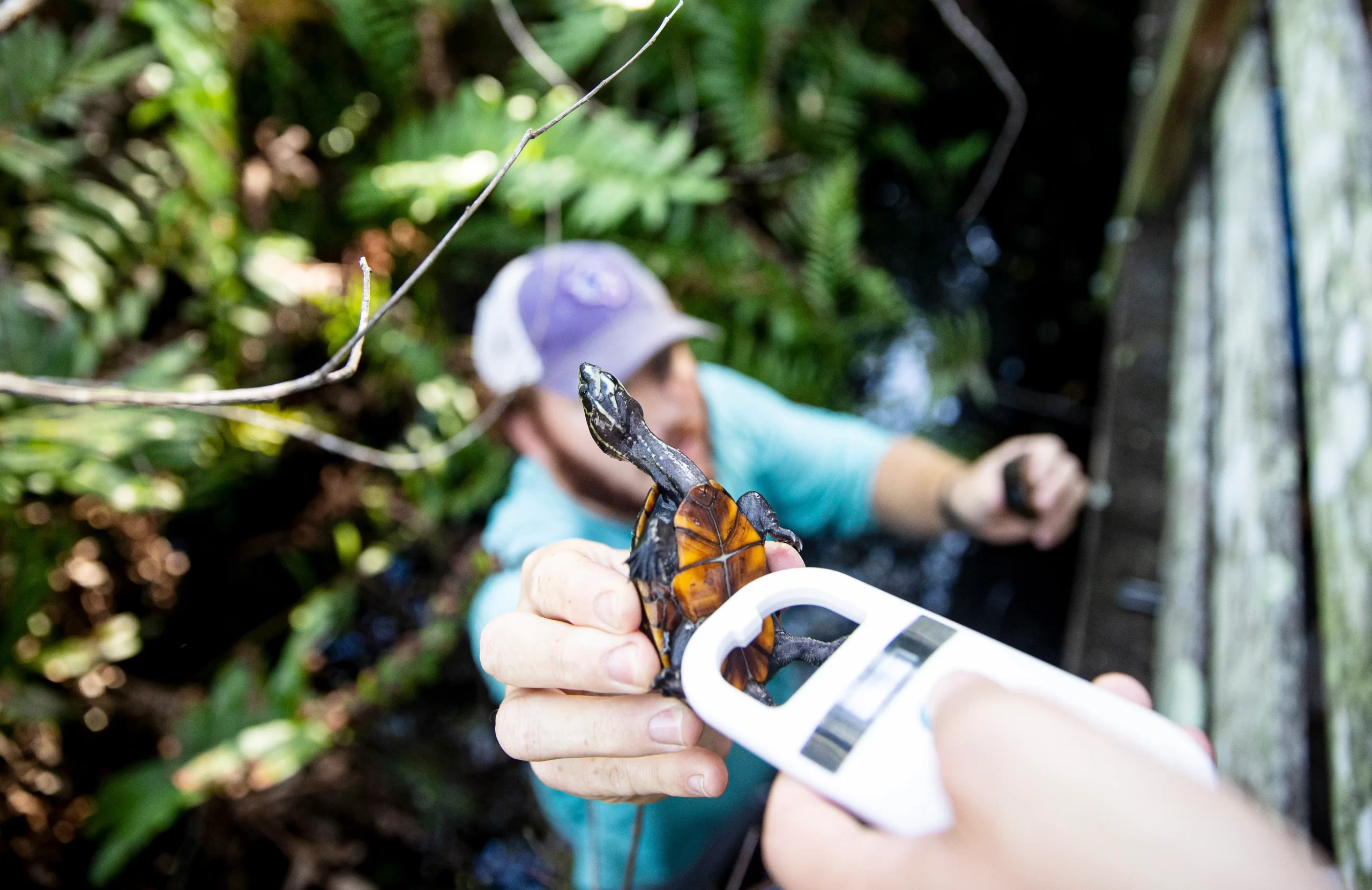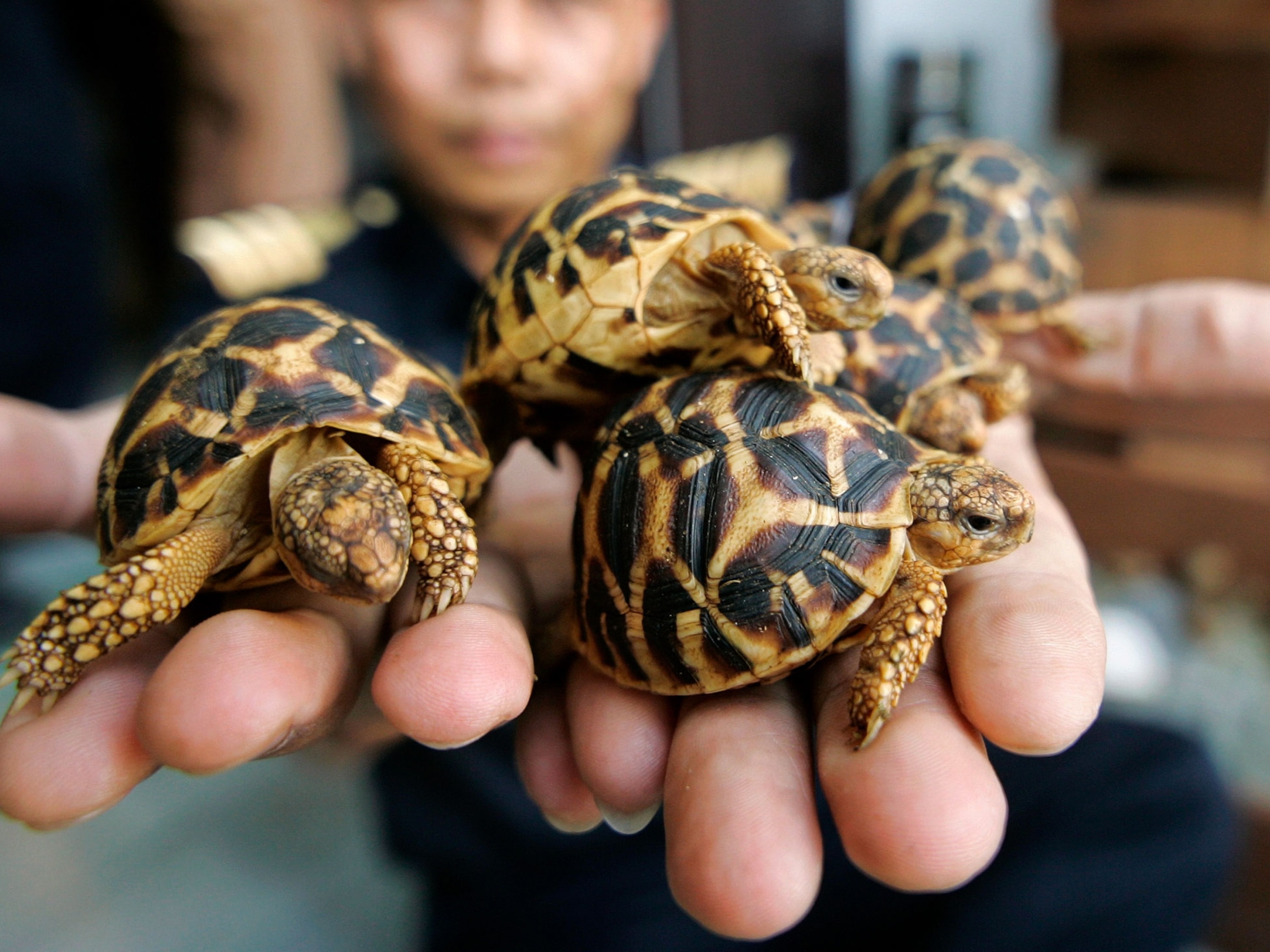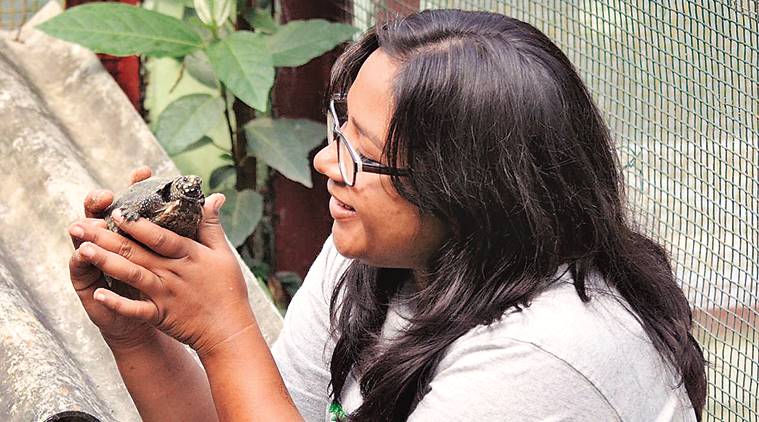News
Demand for Freshwater Turtles as Pets Fuels Mass Poaching

Poaching of turtles, driven by rising demand for pets in the United States, Asia, and Europe, according to wildlife trade experts, is contributing to a worldwide decline of rare freshwater turtles and tortoises.
According to one study, over half of the 360 surviving turtle and tortoise species face extinction.
Such concerns have prompted proposals to strengthen freshwater turtle protection at the International Trade of Endangered Species of Wild Fauna and Flora meeting in Panama.
Precise figures on the turtle trade, particularly illegal, can be difficult. Tara Easter, a doctoral candidate at the University of Michigan who studies the trade, estimated the commercial export trade for mud turtles in the United States increased from 1,844 in 1999 to nearly 40,000 in 2017 and for musk turtles from 8,254 in 1999 to more than 281,000 in 2016.
The United States and several Latin American countries cited data from Mexico in their CITES proposal to ban or limit commercial trade in more than 20 mud turtle species, finding that nearly 20,000 were confiscated, mostly at the Mexico City airport, between 2010 and 2022.
Freshwater turtles are among the world’s most trafficked animals, targeted by criminal networks connecting with buyers on the internet before transporting them to black markets in Hong Kong and other Asian cities. They are then sold as pets, collectors, commercial breeding, food, and traditional medicine.
The Turtle Trade is poorly regulated.
The lucrative business — some turtle species prized for their colourful shells or unusual appearance can fetch thousands of dollars in Asia.
Poachers are especially dangerous, according to experts, because they target rare turtle species and adult breeding females.
Many turtle species, which can live for decades, do not reach reproductive maturity for at least a decade.
“The loss of large numbers of adults, particularly females, can send turtles into a spiralling decline from which they cannot recover,” said Dave Collins, Turtle Survival Alliance’s director of North American turtle conservation. “Turtles reproduce at an extremely low rate, producing only a few eggs per year.”
The United States Association of Reptile Keepers, which advocates for responsible private ownership and trade in reptiles and amphibians, stated that “limiting captive breeding and legal trade is counterproductive in addressing reductions in wild populations.”
“If there aren’t enough of a species on Earth,… the solution should be to create more of them,” Daniel Parker, the group’s Florida chapter’s director of media, said in a statement. “By cracking down on breeding and trade, authorities are missing out on potentially effective free market conservation solutions.”
Since 2018, the Collaborative to Combat the Illegal Trade in Turtles, a group of mostly state, federal, and tribal biologists dedicated to combating North American turtle poaching, has documented at least 30 major smuggling cases in 15 states. Some involved only a few dozen turtles, while others involved thousands.
Over the last 20 years, Easter at the University of Michigan has identified 59 cases involving approximately 30,000 illegally traded turtles in the United States.
Earlier this year, a federal judge in North Carolina sentenced a man to 18 months in prison and fined him $25,000 for violating the Lacey Act by trafficking turtles. The law prohibits the illegal taking, possessing, transporting, or selling of fish, wildlife, or plants.
Through a middleman, the man trafficked 722 eastern box turtles — North Carolina’s state reptile — as well as 122 spotted turtles and three wood turtles for markets in Asia. The turtles are worth $1.5 million in Asia, and the man received more than $120,000 for them.
After previously pleading guilty to financing a nationwide smuggling ring that sent 1,500 turtles worth more than $2.2 million from the United States to China, a Chinese national was sentenced to 38 months in prison and fined $10,000 for money laundering in 2021.
The man used PayPal to buy the turtles from American buyers, advertised them on social media and reptile websites, and sold them to reptile markets in Hong Kong.
A New Jersey man was sentenced to two years probation and ordered to pay $350,000 in restitution and fines in 2020 for transporting 1,000 three-toed and western box turtles from Oklahoma to New Jersey in candy wrappers and socks.
The illegal trade has prompted governments to propose listing 42 turtle species under CITES for the first time, including North American musk turtles.
Although some species, such as the eastern musk turtle, are common, a listing means that traders will need a permit to sell them internationally.
Commercial sales of other species, such as alligator snapping turtles, which can weigh up to 200 pounds and are found in the Gulf states of the United States, would be restricted.
Proposals would also tighten regulations on 13 others who are already protected.
“We think that’s important because of the trends that we’ve seen over the last couple of decades in international reptile and particularly turtle trade,” said Matthew Strickler of the U.S. Department of the Interior, who will lead the American delegation at CITES.
“There is significant demand from Southeast Asia for food and the pet trade, but there is also demand from Europe for pets,” he said. “We’ve seen a pattern of turtles being depleted in one location, followed by poachers, traffickers, and traders moving to another.” Southeast Asia had been depleted. They relocated to Africa. They are now relocating to the Americas.”
A Rhode Island Environmental Police intern discovered the tiny musk turtles for sale online. They only cost $20 each. The turtles are brown or black with a white or yellow line down the middle of their heads and can live for decades.
In September, police arrested the seller after arranging an undercover purchase at his home. The seller paid a $1,600 fine for illegally possessing a reptile. The turtles, now quarantined at the Providence Zoo, are expected to be healthy and disease-free when released back into the wild.
“When native species are removed even for pets, it has a significant impact,” said Harold Guise, an environmental police detective who handled the case. “Wildlife commercialization impacts wildlife that we can’t measure until it’s too late.” We must get ahead of these issues.”
It reminded Perrotti, the conservation director, that illegal trade, which was previously focused in Asia, is increasingly occurring in his backyard.
“I couldn’t believe there was a market for it and that someone was mass producing or mass collecting these to make a few dollars,” he said. “It’s a $20 turtle.” That is absurd… Wildlife is not a commodity that can be profited from.”
The Associated Press, VOR News


:format(webp)/https://www.thestar.com/content/dam/thestar/news/world/us/2022/11/09/turtles-in-demand-as-pets-leading-to-a-spike-in-poaching/20221109111112-636bd19546f790c91be27d56jpeg.jpg)






























